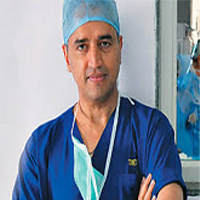Robotic minimally invasive surgery IN INDIA
Explore robotic minimally invasive surgery in India for advanced precision and faster recovery. Learn about top hospitals, expert surgeons, available treatments, and cost-effective options that make India a global leader in robotic surgery.
In the rapidly evolving field of medicine, robotic minimally invasive surgery (MIS) has emerged as a groundbreaking advancement, offering unparalleled precision and improved patient outcomes. By leveraging robotic technology, this innovative surgical approach has transformed the way complex procedures are performed, reducing the physical toll on patients and enhancing recovery times. India, known for its robust healthcare system and cutting-edge medical facilities, has become a global leader in offering robotic MIS across various specialties.
With its combination of advanced technology, highly trained surgeons, and affordable treatment options, India has solidified its position as a preferred destination for robotic surgeries. Hospitals across the country are equipped with state-of-the-art robotic systems like the da Vinci Surgical System, enabling surgeons to perform intricate procedures with accuracy that was once unimaginable.
For patients seeking effective, minimally invasive solutions for complex medical conditions, robotic surgery in India is a beacon of hope. Facilitators like Al Afiya MediTour further simplify the treatment journey, ensuring that patients have access to the best hospitals, expert surgeons, and comprehensive care throughout their medical experience.
Introduction:
Robotic minimally invasive surgery (MIS) has transformed the landscape of medical treatment, offering unparalleled precision, reduced recovery time, and minimized complications. This cutting-edge technology involves the use of robotic systems controlled by skilled surgeons, enabling complex procedures to be performed through small incisions. Over the past decade, India has emerged as a global leader in robotic minimally invasive surgery, thanks to its state-of-the-art facilities, highly skilled specialists, and cost-effective solutions.
From cancer treatment to gynecological procedures, robotic MIS is now available for a wide range of medical conditions. For international and domestic patients alike, India represents a beacon of hope, combining advanced healthcare infrastructure with a commitment to patient-centric care.
What Is Robotic Minimally Invasive Surgery?
Robotic MIS is a modern surgical technique where surgeons use robotic systems to perform procedures with enhanced precision. The robotic arms are equipped with tiny instruments and cameras, which are inserted into the body through small incisions. The surgeon operates from a console, viewing a magnified 3D image of the surgical site and controlling the robotic instruments with extreme accuracy.
The benefits of robotic MIS include:
- Smaller incisions and less scarring.
- Reduced pain and blood loss.
- Faster recovery times.
- Lower risk of infection and complications.
- Enhanced precision in complex surgeries.
What are the Conditions that can be Treated Using Robotic Minimally Invasive Surgery in India?
Robotic MIS is revolutionizing the treatment of various medical conditions across multiple specialties. Here are some of the key areas where it is widely used:
- Cancer Treatment
Robotic surgery is particularly effective in oncology, enabling precise removal of tumors while sparing surrounding healthy tissues. It is used for:
- Prostate Cancer: Prostatectomy with robotic assistance ensures precision and reduces urinary and sexual side effects.
- Kidney Cancer: Partial or total nephrectomy can be performed with minimal damage to surrounding organs.
- Lung Cancer: Robotic-assisted thoracic surgery (RATS) is used for lobectomy and lymph node dissection.
- Stomach and Colorectal Cancer: Enhanced accuracy in tumor removal ensures better patient outcomes.
- Gynecology
Robotic surgery has become a game-changer in gynecological procedures, providing better outcomes for conditions like:
- Endometriosis.
- Uterine fibroids.
- Hysterectomy (removal of the uterus).
- Ovarian cystectomy and cancer surgeries.
- Urology
In urology, robotic surgery is widely used for:
- Prostatectomy.
- Pyeloplasty (repair of the kidney’s drainage system).
- Bladder reconstruction.
- Treatment of urinary incontinence.
- Gastrointestinal and Hepatobiliary Surgeries
Robotic systems allow surgeons to perform complex gastrointestinal surgeries with enhanced precision, including:
- Gastric bypass for obesity.
- Liver resections.
- Pancreatic surgeries.
- Cardiothoracic Surgery
For delicate procedures involving the heart and lungs, robotic surgery offers superior outcomes with minimal trauma:
- Mitral valve repair.
- Coronary artery bypass surgery.
- Thoracic tumor removal.
- Orthopedics
Robotic-assisted orthopedic surgeries provide improved alignment and precision in:
- Joint replacements (knee and hip).
- Spinal surgeries.
Why Choose Robotic Minimally Invasive Surgery in India?
India has become a preferred destination for robotic MIS due to several advantages:
- World-Class Hospitals: India boasts a wide range of hospitals equipped with advanced robotic systems like the da Vinci Surgical System and ROSA Robotics. Prominent hospitals include:
- Apollo Hospitals.
- Fortis Healthcare.
- Medanta – The Medicity.
- Max Healthcare.
- Manipal Hospitals.
- Experienced Surgeons: Indian surgeons are internationally trained and have extensive experience in performing robotic surgeries across various specialties.
- Cost-Effective Treatment: The cost of robotic surgery in India is significantly lower than in Western countries, making it accessible to a larger patient population without compromising on quality. For instance: Robotic prostatectomy in India costs between ₹3,50,000 and ₹7,00,000 ($4,300–$8,500), whereas the same procedure in the US may exceed $30,000.
Comprehensive Care: Hospitals in India offer end-to-end care for international patients, including visa assistance, language interpreters, and post-surgical follow-ups.
What are the Costs of Robotic Minimally Invasive Surgery in India?
The affordability of robotic surgery in India is one of its biggest attractions. Here’s an approximate cost comparison for common procedures:
| Procedure | Cost in India (INR) | Cost in India (USD) | Cost in Western Countries (USD) |
| Robotic Prostatectomy | ₹3,50,000 – ₹7,00,000 | $4,300 – $8,500 | $30,000 – $45,000 |
| Robotic Hysterectomy | ₹3,00,000 – ₹6,00,000 | $3,700 – $7,300 | $25,000 – $40,000 |
| Robotic Kidney Surgery | ₹3,50,000 – ₹7,00,000 | $4,300 – $8,500 | $30,000 – $50,000 |
| Robotic Mitral Valve Repair | ₹6,00,000 – ₹12,00,000 | $7,300 – $14,600 | $50,000 – $70,000 |
| Robotic Colorectal Surgery | ₹4,00,000 – ₹8,00,000 | $4,900 – $9,800 | $35,000 – $60,000 |
How Al Afiya MediTour Facilitates Robotic Surgery in India?
Al Afiya MediTour is a trusted partner for international patients seeking robotic surgery in India. Here’s how they simplify the treatment journey:
- Access to Leading Hospitals and Specialists: Al Afiya MediTour connects patients with India’s top hospitals and surgeons specializing in robotic procedures.
- Customized Treatment Plans: Every patient receives a tailored treatment plan based on their medical condition, ensuring optimal outcomes.
- Affordable Packages: The organization offers transparent and cost-effective packages, covering all aspects of treatment.
- Seamless Logistics Management: From travel and accommodation to hospital appointments, Al Afiya MediTour handles all logistical details for a stress-free experience.
- Post-Surgery Support: Patients receive comprehensive follow-up care, including virtual consultations and rehabilitation guidance.
What are the pre operative care of Robotic Minimally Invasive Surgery?
Pre-operative care is critical to ensure that the patient is prepared for the robotic surgery procedure and to minimize risks. Here’s what typically happens before the surgery:
- Medical Evaluation and Health Screening:
- A thorough physical examination is conducted to assess the patient’s overall health.
- Blood tests, imaging tests, and other diagnostic procedures may be performed to evaluate the patient’s fitness for surgery.
- The surgeon will review the patient’s medical history, including any allergies, current medications, and previous surgeries.
- Consultation with the Surgical Team:
- The surgeon will explain the procedure in detail, including what to expect, the benefits, and the potential risks.
- The patient may be asked to sign consent forms after fully understanding the procedure and its risks.
- Medications and Lifestyle Adjustments:
- Some medications may need to be stopped temporarily, especially blood thinners or diabetes medication, to reduce the risk of complications during surgery.
- Patients may be advised to make lifestyle changes like improving diet or quitting smoking to promote better healing after surgery.
- Fasting and Hydration Instructions:
- Patients are typically instructed to fast for at least 6-8 hours before the surgery to avoid complications like aspiration during the procedure.
- Psychological Preparation:
- Preparing mentally for surgery can help reduce anxiety. Patients may be encouraged to engage in relaxation techniques or counseling, especially if the surgery is extensive.
Post-Operative Care for Robotic Surgery
The recovery phase is equally important and involves careful monitoring to ensure that the patient heals properly. Post-operative care for robotic surgery focuses on minimizing complications and aiding a quicker recovery. Here’s what typically happens after surgery:
- Recovery Room Monitoring:
- After the surgery, patients are transferred to a recovery room where their vital signs, such as heart rate, blood pressure, and oxygen levels, are closely monitored.
- Patients are observed for any immediate reactions to anesthesia or the surgical procedure.
- Pain Management:
- Pain after robotic surgery is usually minimal due to the smaller incisions, but pain management is still provided through medications like analgesics or local anesthetics.
- Some patients may be prescribed narcotics for short-term pain relief, while others may only require over-the-counter pain relievers.
- Gradual Mobilization:
- Patients are encouraged to start moving as soon as they feel able to, usually within a few hours after surgery.
- Early mobility helps prevent complications like blood clots and promotes faster healing.
- Dietary Guidelines:
- In the initial stages after surgery, patients may be placed on a liquid diet, gradually progressing to solid foods as tolerated.
- The surgeon or dietitian will advise on foods that are easy to digest and promote healing.
- Wound Care:
- The robotic incisions are typically smaller than those of traditional surgery, reducing the risk of infection. However, proper care is essential.
- Patients will be instructed on how to clean and care for the incision sites, and the healthcare team will monitor for signs of infection, such as redness or swelling.
- Follow-Up Appointments:
- Patients will need to return to the hospital for follow-up visits to monitor their progress.
- During these appointments, the surgeon will check the surgical site, remove any stitches (if applicable), and ensure the patient is healing properly.
- Resuming Physical Activity:
- Physical activity should be limited in the first few weeks following surgery, with strenuous exercises or heavy lifting avoided for several weeks.
- Depending on the surgery, patients may receive physical therapy to help restore strength and mobility.
- Psychological Support:
- Emotional and psychological well-being is an essential aspect of recovery. Patients may feel anxious or overwhelmed after surgery, and mental health support can help address these concerns.
- Support groups or counseling sessions can help patients adjust during their recovery period.
Top Robotic minimally invasive surgery Doctors in India
The right doctor to consult for a Robotic minimally invasive surgery case.
Dr. Ashok Seth
Year of experience: 40
Senior Consultant at Fortis Escorts Heart Institute, Delhi
Dr. Atul Mathur
Year of experience: 41
Executive Director and Senior Consultant at Fortis Escorts Heart Institute, Delhi
Dr. D.K. Jhamb
Year of experience: 29
Director and Senior Consultant at Shalby Sanar International Hospital, Gurgaon, India
Dr. Ganesh K. Mani
Year of experience: 37 Years of Experience
Dr. K. K. Saxena
Year of experience: 44
Consultant at Indraprastha Apollo Hospital, Delhi
Dr. Mahesh Chandra Garg
Year of experience: 49 Years of Experience
Dr. Murtaza Ahmed Chishti
Year of experience: 34 years of experience
Dr. Nikhil Kumar
Year of experience: 42
Senior Consultant at Fortis Memorial Research Institute, Gurgaon
Dr. Praveen Chandra
Year of experience: 37+ Years of Experience
Dr. Rajneesh Malhotra
Year of experience: 31+ Years of Experience
Dr. Sandeep Attawar
Year of experience: 22 years of experience
Dr. Sanjeev Chaudhary
Year of experience: 30
Chairman and Senior Consultant at Marengo Asia Hospitals Formerly W Pratiksha Hospital, Gurgaon
Dr. T. S. Kler
Year of experience: 48
Senior Consultant at BLK Super Speciality Hospital
Dr. Udgeath Dhir
Year of experience: 18+ Years of Experience
Dr. Y K Mishra
Year of experience: 32 years of experience
Looking For The Best Doctor & Hospital?
Fill up the form and get assured assitance within 24 hrs!
What are the success rates of robotic surgery?
Robotic surgeries have high success rates, especially for cancer, urological, and gynecological procedures, due to their precision and reduced complications.
FAQs
- Is robotic surgery safe?
Yes, robotic surgery is extremely safe when performed by experienced surgeons. It offers enhanced precision and significantly reduces the risk of complications.
- Which hospitals in India are best for robotic surgery?
Top hospitals for robotic surgery in India include Apollo Hospitals, Medanta, Fortis Healthcare, and Max Healthcare.
- How do I know if robotic surgery is suitable for me?
The suitability of robotic surgery depends on the patient’s medical condition and the procedure required. A consultation with a specialist will help determine the best approach.
- How long does it take to recover from robotic surgery?
Recovery times are generally shorter than traditional open surgery, ranging from a few days to a few weeks depending on the procedure.
- Are international patients provided support during their treatment in India?
Yes, hospitals and facilitators like Al Afiya MediTour offer language interpreters, travel assistance, and 24/7 patient support.
- Is robotic surgery covered by insurance?
Many insurance plans cover robotic surgeries, but it is advisable to check with your provider beforehand.
- What makes robotic surgery better than traditional surgery?
Robotic surgery offers smaller incisions, reduced pain, faster recovery, and higher precision, making it superior for many procedures.
- How does Al Afiya MediTour help with robotic surgery?
Al Afiya MediTour connects patients with top hospitals and surgeons, handles logistics, and ensures personalized care throughout the treatment journey.
- Can robotic surgery treat advanced-stage cancer?
Yes, robotic surgery can treat advanced cancer stages, particularly in combination with other therapies like chemotherapy and radiation.
Get FREE Evaluation
Treatment plan and quote within within 24 hrs!
Let us help you
Get your personalized Estimate Now
Top Doctors & Surgeons in India
Best Hospitals in India
Best Treatments in India
Indian Medical Visa From
Copyright © 2025 Al Afiya Medi Tour | All Rights Reserved.









































